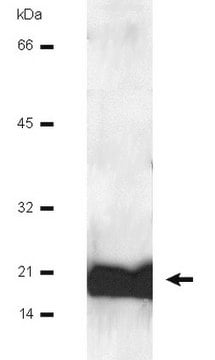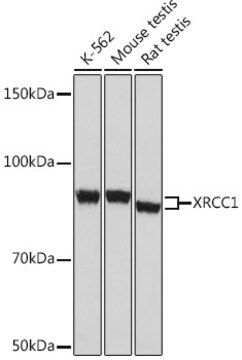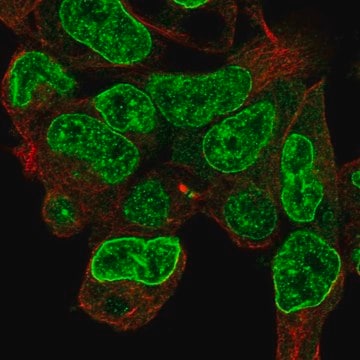PLA0046
Rabbit anti-ATR Antibody, Affinity Purified
Powered by Bethyl Laboratories, Inc.
Synonym(s):
FCTCS, FRAP-related protein 1, FRAP-related protein-1, FRP1, MEC1, SCKL, SCKL1, ataxia telangiectasia and Rad3 related, ataxia telangiectasia and Rad3-related protein, homolog, homolog (S. cerevisiae), mitosis entry checkpoint 1
About This Item
WB
western blot: 1:2,000-1:10,000
Recommended Products
biological source
rabbit
Quality Level
antibody form
affinity purified immunoglobulin
antibody product type
primary antibodies
grade
Powered by Bethyl Laboratories, Inc.
species reactivity
human
technique(s)
immunoprecipitation (IP): 2- 5 μg/mg
western blot: 1:2,000-1:10,000
accession no.
NP_001175.1
UniProt accession no.
shipped in
wet ice
storage temp.
2-8°C
target post-translational modification
unmodified
Gene Information
rabbit ... ATR(545)
General description
Immunogen
Biochem/physiol Actions
Physical form
Other Notes
Disclaimer
Not finding the right product?
Try our Product Selector Tool.
Storage Class Code
12 - Non Combustible Liquids
WGK
nwg
Flash Point(F)
Not applicable
Flash Point(C)
Not applicable
Choose from one of the most recent versions:
Certificates of Analysis (COA)
Don't see the Right Version?
If you require a particular version, you can look up a specific certificate by the Lot or Batch number.
Already Own This Product?
Find documentation for the products that you have recently purchased in the Document Library.
Our team of scientists has experience in all areas of research including Life Science, Material Science, Chemical Synthesis, Chromatography, Analytical and many others.
Contact Technical Service






